CVG, Air Canada, Avianca, GOL and Schiphol discuss tech-focused and experiential strategies to make travel more accessible for all
The following article was published by Future Travel Experience
In this article, CVG Airport, Air Canada, Avianca, GOL Airlines, and Schiphol Group, share their progressive accessibility strategies and how they are exploring tech-focused and experiential solutions.
Accessibility is undoubtedly an important topic right now and features in FTE’s ‘12 technology and CX trends that can enhance airline and airport operations in 2024’. In part 1 of our focus on accessibility, Hannah Meredith, Senior Manager of Strategic Innovation, Cincinnati/Northern Kentucky International Airport; Kerianne Wilson, Director, Customer Accessibility, Air Canada; Michael Swiatek, Global Chief Strategy Officer, Abra Group (parent company of Avianca and GOL Airlines); and Jan Zekveld, Head of Innovation, Schiphol Group, share their organisations’ progressive accessibility strategies and how they are exploring tech-focused and experiential solutions to make travel more accessible for all. Accessibility will be further explored in-depth in the FTE Accessibility Symposium at FTE Global – the “CES of Aviation” – in Los Angeles, 28-30 October 2024.
Register for FTE Global 2024 >>CVG’s focus on technology and advanced, intuitive solutions for accessibility
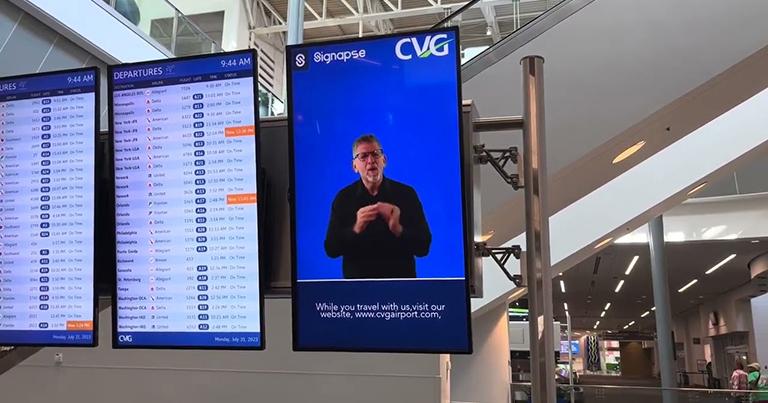
As a key element of its accessibility strategy, Cincinnati/Northern Kentucky International Airport (CVG) – a Corporate Partner of the FTE Digital, Innovation & Startup Hub – strives to ensure that all travellers feel safe and welcome, with the tools they need to travel with ease. “Our approach is evolving to anticipate the needs of our passengers and to ensure that our facility is always ready to welcome them,” explains Hannah Meredith, Senior Manager of Strategic Innovation, CVG Airport. “We are doing this by studying other technology and infrastructure solutions that will provide an equitable journey for all. While airports have certain accessibility requirements as mandated by the ADA (Americans with Disabilities Act), Passenger Bill of Rights, and Reauthorization Act, CVG is willing to go above and beyond these basic and often dated requirements to meet and anticipate the needs of today’s disabled and special needs travellers.”
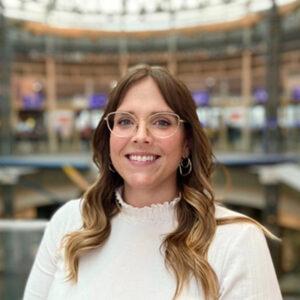
Meredith is participating in the FTE Accessibility Symposium at FTE Global – the “CES of Aviation” taking place in Los Angeles, 28-30 October 2024. Her key messages will include the importance of advanced solutions for accessibility that are more intuitive than those currently offered at airports, especially relating to translation services. “Furthermore, I would like to stress the importance of designing airport facilities to be adaptable to new technologies that support accessibility,” Meredith shares. “Examples of this are designing storage areas in the airport that can house autonomous battery-powered tech like autonomous wheelchairs, cleaning devices, and more, as well as migrating signage to digital signage to enable easy changes in graphics and to include ASL (American Sign Language) translations. Finally, I’d like to touch on the importance of collaboration for success, not only with airline partners, but also community partners.”
At FTE Global, Meredith will discuss CVG’s success with Signapse for Artificial Intelligence (AI)-powered ASL digital signage, the trial with MagnusCards for non-English speaking employees, plus the previous autonomous wheelchair trials and where the airport is today with that technology. “I will also discuss CVG’s LIFT program (Leading Individuals Forward Together) and how CVG is working with airline partners and the community to make travel less intimidating for individuals on the autism spectrum or other special needs.”
Air Canada’s engagement with the disability community and employees to enhance accessibility and CX
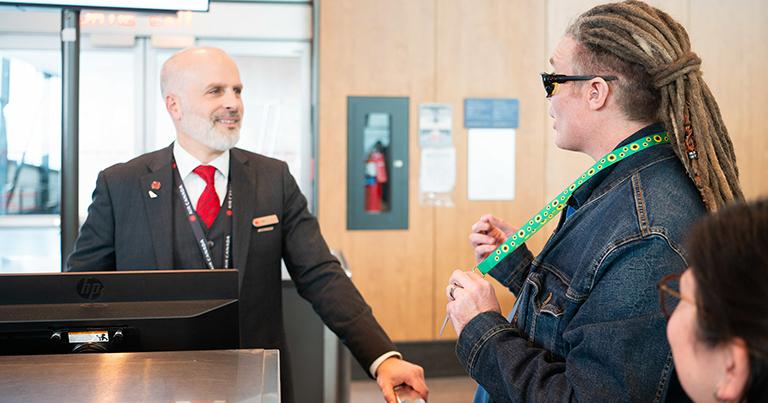
The key elements to Air Canada’s accessibility strategy are meaningful consultation with the disability community and employee engagement. “When we talk about meaningful consultation, we mean engaging with real people with disabilities, hearing their stories, and getting their insights and recommendations,” says Kerianne Wilson, Director, Customer Accessibility, Air Canada. “People with disabilities are innovators by necessity and see the world with a unique perspective. We’re building our network of trusted partners, including our wonderful new Accessibility Advisory Committee, and leveraging that network to design and implement with that accessibility lens in place.”
Hand-in-hand with consultation of the disability community is employee engagement. Air Canada’s employees are committed to providing excellent service to customers with disabilities, recognising that they have extensive experience and great ideas on how to grow and learn together. “Engaging meaningfully with them gives us valuable insight as to where they would like more information, support or tools in order to better deliver that strong customer experience,” Wilson shares. “Ultimately, it comes down to listening to our customers and our employees and working together collaboratively. At the end of the day, accessibility is everyone’s business.”

Wilson emphasises that disability and accessibility are not monoliths. “You might hear the saying ‘when you have met one person with a disability, you have met one person with a disability’. No two people are alike, no two people have the same needs,” Wilson explains. “Understanding that in theory is one thing – ensuring smooth and easy communication of these nuances is another matter entirely. We are working on different ways that we can better communicate with our customers and within our own organisation – hopefully we can share more in the coming months.”
Air Canada is also looking at how Artificial Intelligence (AI) can be used to analyse customer patterns and requests, so the airline can use its resources as efficiently and intelligently as possible. “This is a very exciting area and it will be fascinating to see the positive impact of this powerful tool on accessibility,” says Wilson.
Earlier this year, Air Canada adopted the Hidden Disabilities Sunflower program to better serve customers with non-visible disabilities and the overall reaction has been very positive. “It’s important to remember that the Hidden Disabilities Sunflower program is part of an overall societal movement towards greater understanding and awareness of disability and accessibility – it does not exist in a vacuum,” Wilson explains.
Indeed, the program is a tool for both customers and employees: it gives customers a way of signalling that they need a bit of time or patience, or they might need help, while also prompting employees to reach out and start conversations and engage differently. Wilson adds that it is enabling Air Canada to tap into a different way of strengthening connections between people. “We are excited to see the program have a bigger and bigger impact as more people become aware of the broad range of non-visible disabilities, and how impactful the simple question of ‘How can I best assist you?’ is when asked with a spirit of openness and care.”
Avianca and GOL Airlines’ commitment to accessibility at all levels
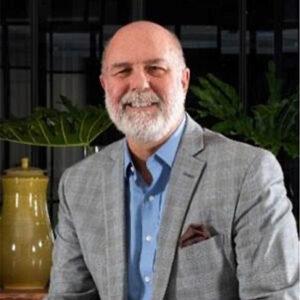
Michael Swiatek, Global Chief Strategy Officer, Abra Group (parent company of Avianca and GOL Airlines) is moderating the FTE Accessibility Symposium at FTE Global – the “CES of Aviation” taking place in Los Angeles, 28-30 October 2024. “As the moderator, my mission is to elevate the lives of the world’s largest minority – 1.3 billion people with disabilities – particularly those who are legally blind, like myself, or have low vision,” he explains. “My focus is on how they can more easily navigate the world of airline travel, both on the ground and in the air.”
Indeed, as not only a senior executive with real-world success in the airline industry but also legally blind himself, Swiatek’s unique life experiences have shaped his outlook and career journey. “Having served as a senior leader in the airline industry while being legally blind, it’s my time to give back,” Swiatek shares. “My goal is to inspire the panel and audience by sharing real-world lessons I’ve learned and combining them with my mission to improve the lives of disabled people. I aim to foster an open discussion around the challenges and opportunities in making air travel more accessible, with a particular emphasis on inclusion, real-world strategies, and inspiration.”
Abra Group’s accessibility strategy includes five key elements:
- Awareness-building at all levels: Raising awareness among team members and guests about the needs of travellers with disabilities, promoting a culture of inclusivity.
- Comprehensive training and culture: Providing continuous training to airline employees at all levels, from the executive team to those directly involved in guest experiences.
- Process improvement and embracing change: Examining and reengineering business processes to better address the specific needs of guests with disabilities.
- Fully embracing technology integration: Implementing technological solutions, such as mobile apps for communication, to enhance accessibility.
- Physical technology: Incorporating features like braille seat numbering, empowered by a deep cultural understanding of the importance of accessibility in making the world a better place.
“What sets Abra Group apart is our commitment to accessibility at all levels,” says Swiatek. “This commitment is demonstrated by a direct mandate given to me as the Global Chief Strategy Officer by both our CEO and Board, as well as by the dedication of the tens of thousands of team members within Abra’s operational business units. This comprehensive approach gives our initiative real power.”
Schiphol’s focus on providing high quality service offerings for all passengers
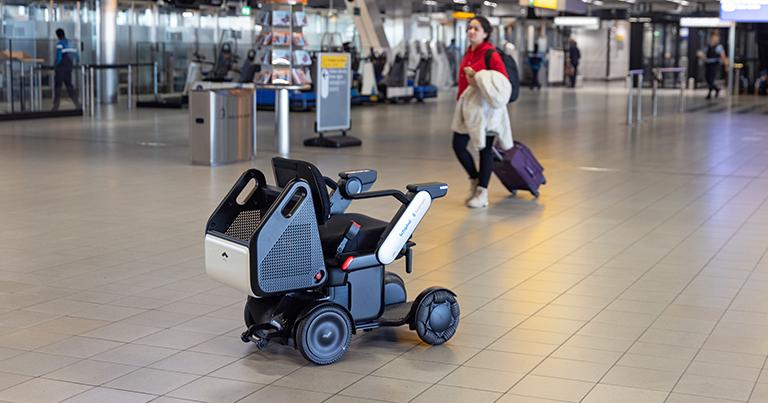
The ambition of Schiphol Group – a Corporate Partner of the FTE Digital, Innovation & Startup Hub – is to provide high quality service offerings for all passengers. “It is challenging to keep up with the increasing demand for PRM (passengers with reduced mobility) services, as scaling these services often comes with dependencies on increasingly harder-to-find personnel,” explains Jan Zekveld, Head of Innovation, Schiphol Group. “Also, Schiphol Group airports are to a certain extent space-constrained, meaning that adding more, or different, movements from assistance vehicles will potentially interfere with airport flow and therefore capacity – influencing safety or experience in new and unforeseen manners. Novel technologies can help and assist in solving parts of that, which is why we partner and develop some of these solutions ourselves and explore how to make these solutions a fully integral part of our airport operations, connecting the world of all passengers who seek to travel via our airports.”

Indeed, Schiphol’s PRM Call Point, for example, is an innovation that aims to enable travellers requiring PRM services to receive those with an optimal experience. “It is designed to be accessible for PRMs and to streamline the processes for the airport to facilitate these services,” says Zekveld. “It can, for instance, assist in scanning a boarding card. Additionally, it enables live two-way audiovisual communication and a chat function.”
Schiphol recently announced it is continuing its trial of autonomous mobility vehicles from WHILL (an exhibitor at FTE Global – the “CES of Aviation”, taking place in Los Angeles on 28-30 October 2024). The aim of the trial is to discover how autonomous mobility vehicles can make travelling as easy as possible for people with reduced mobility. “The technology enables passengers who cannot travel long distances for medical or other reasons to travel safely and independently by offering a fleet of self-driving wheelchairs,” Zekveld shares.
Zekveld adds that projects and trials such as the autonomous wheelchairs have the potential to help Schiphol keep up with the increasing demand for PRM services, without creating a larger dependency on increasingly harder-to-find personnel. “In addition, this technology offers room to explore where our employees can add most value to the passenger, and where the technology can take over repetitive tasks, such as repositioning empty wheelchairs. Even in terminals where processes are autonomous or automated, human contact remains critical in providing tailor-made and humane care.”
FTE Accessibility Symposium to take place at FTE Global – the “CES of Aviation” – in Los Angeles, 28-30 October 2024
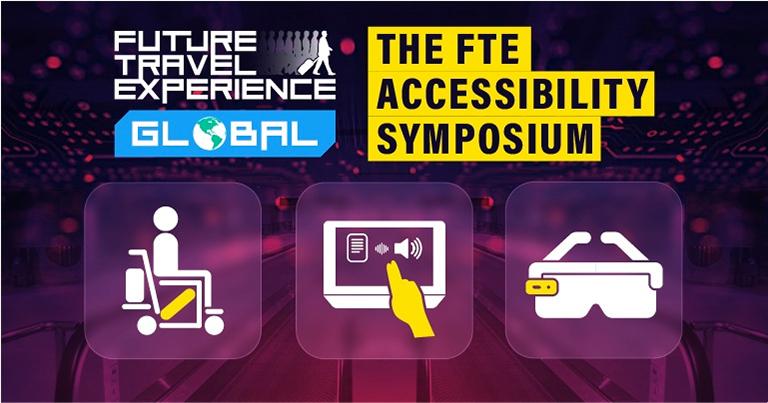
Article originally published here:
CVG, Air Canada, Avianca, GOL and Schiphol discuss tech-focused and experiential strategies to make travel more accessible for all
from Future Travel Experience https://ift.tt/K9akmGV
Comments
Post a Comment